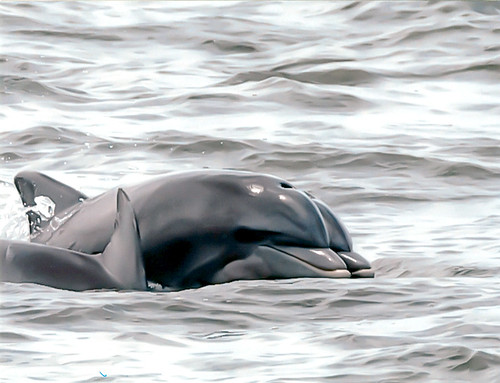Lethargic Sea Turtles, Marine Mammals Should Be Reported

Dolphins in the Miles River. Photo by Steve Aprile, submitted to the 2013 Maryland DNR Photo Contest
The Maryland Department of Natural Resources asks visitors to the Chesapeake Bay to be vigilant for marine mammals or sea turtles who show signs of cold-stunning or hypothermia.
Cold stunning occurs in late autumn and early winter when the Bay’s water temperatures start to fall. The cold water can cause immediate impacts making some species become slow and unresponsive, making them dangerous to themselves and boaters.
Cold-stunning can also be lethal to both marine mammals and sea turtles. Annually, marine animal rescue organizations respond to thousands of cold-stunned animals along the East Coast.
Anyone who sees an unresponsive or lethargic sea turtle or marine animal in Maryland waters or on shore should call the Maryland Marine Mammal Stranding Hotline at 800-628-9944. The hotline is manned 365 days a year, 24 hours a day.
“While cold-stunning is a natural occurrence, reporting incidents can help protect these animals and the public,” said Amanda Weschler, coordinator of Maryland’s Marine Mammal and Sea Turtle Stranding Response Program,
As a reminder, marine mammals are protected under the Marine Mammal Protection Act while sea turtles are protected under the Endangered Species Act. Harassment, feeding, or collecting these species can result in fines, imprisonment, or the seizure of vessels and personal property.
